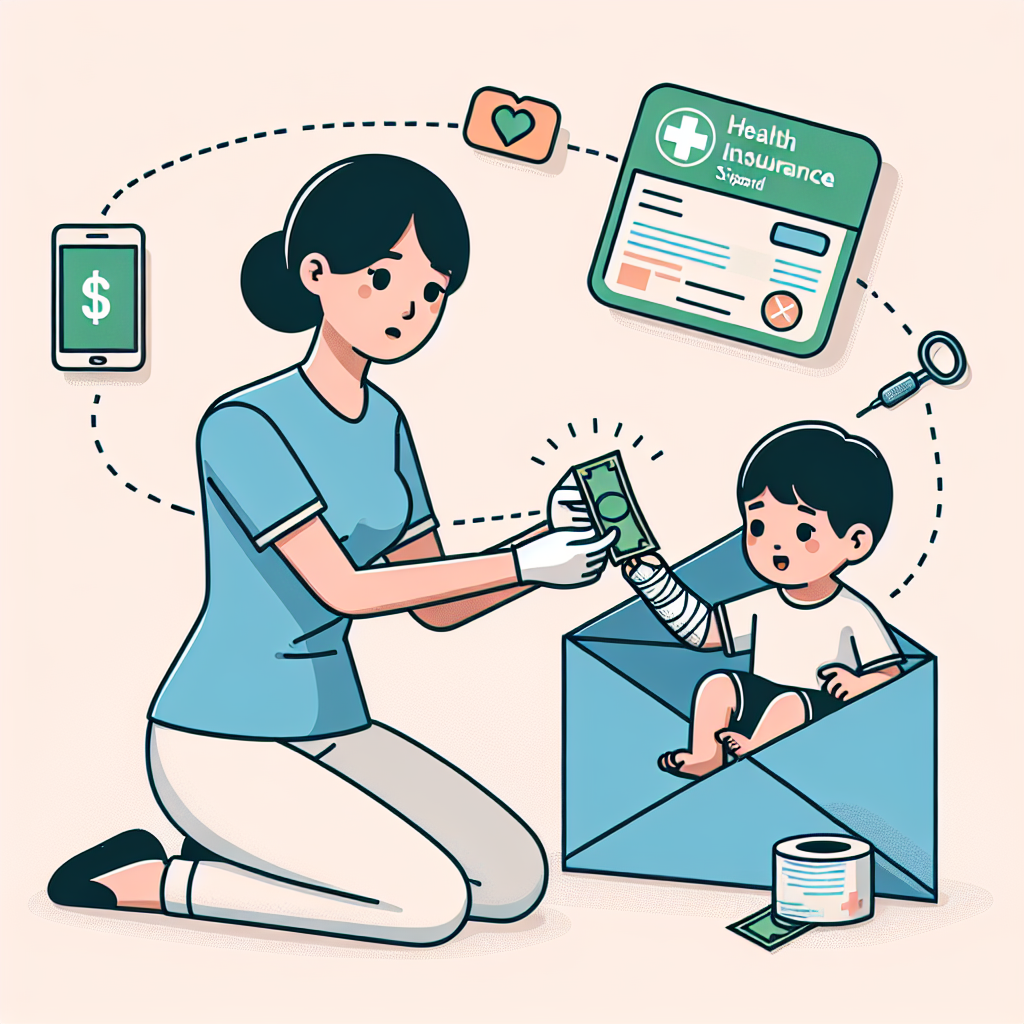Filed under Health Insurance on
Understanding Health Insurance Stipends for Nannies

Health insurance is a critical aspect of employment for many individuals, including nannies. As families increasingly recognize the importance of offering health benefits, health insurance stipends have become a popular option. These stipends are monetary allowances given to employees to help cover their health insurance premiums. Understanding how health insurance stipends work is essential for both families and nannies, ensuring that both parties can benefit from this approach.
What Are Health Insurance Stipends?
Health insurance stipends are a financial incentive provided by employers to employees which can be used at their discretion to purchase health insurance coverage. Unlike traditional health insurance plans where the employer selects the coverage, stipends give nannies the flexibility to choose a plan that meets their personal needs.
This arrangement is particularly beneficial for nannies who frequently have varying career paths and may need health coverage that moves with them from one family to another. By providing a stipend, families empower nannies to choose their own plans without being bound to a single provider or plan type.
How Do Health Insurance Stipends Work?
Typically, a family will determine an amount to offer as a health insurance stipend, either on a monthly or annual basis. The nanny can then use this stipend to purchase their own insurance policy. This amount can vary greatly depending on the family's budget and the nanny's needs.
From an administrative perspective, health insurance stipends are relatively straightforward. They do not require families to navigate the complexities of selecting a group health plan or dealing with insurance companies directly. However, they do require clear communication and agreements between the employer and the nanny to ensure proper utilization of the funds.
One example of this setup could be a family who offers their nanny a $200 monthly stipend. The nanny can then use this sum to help pay for a personal health insurance plan through a marketplace or private insurer that's best suited for her circumstances.
Legal Considerations
While health insurance stipends offer flexibility, there are legal considerations that both families and nannies should be aware of:
- Tax Implications: In most instances, health insurance stipends are considered taxable income for the nanny. This means that both parties should be aware of how these stipends will affect the nanny’s paycheck and tax filings.
- Documentation: It's crucial for families to document the stipend arrangement clearly. This includes a written agreement outlining the stipend amount, payment schedule, and any conditions for its use.
- Compliance with ACA: Although small families are not mandated to provide health insurance under the Affordable Care Act (ACA), they must understand how stipends interact with ACA marketplace subsidies if the nanny opts for a marketplace plan.
Advantages of Health Insurance Stipends
Offering a health insurance stipend has several advantages:
- Empowers Flexibility: By providing a stipend rather than a specific health plan, nannies can choose a policy that best fits their needs, including specific coverage preferences or medical provider networks.
- Reduces Employer Burden: Families do not need to manage the complexities of group health plan selection or ongoing administration.
- Attracts Top Talent: Offering a health stipend can make a family more attractive to prospective nannies who value having control over their own health benefits.
Challenges and Considerations
Despite their advantages, health insurance stipends come with some challenges:
- Taxation: Since stipends are taxable income, nannies need to account for taxes, which might reduce the net benefit.
- Lack of Direct Coverage: Unlike direct employer-sponsored insurance, stipends don't provide direct health coverage, which might be less appealing to some.
- Market Variability: Health insurance markets can fluctuate, potentially making it difficult for nannies to find stable and affordable plans independently.
Implementation Tips for Families
For families looking to implement a health insurance stipend for their nanny, here are some practical tips:
- Determine a Fair Stipend Amount: Research average health insurance premiums in your area to offer a competitive stipend that genuinely helps cover costs.
- Communicate Clearly: Discuss the details with your nanny to ensure understanding regarding stipend use, taxation, and any other concerns.
- Draft a Formal Agreement: Put the stipend terms into a written agreement to avoid any misunderstandings and to provide clarity for both parties.
- Assess Annually: Review the stipend amount yearly to ensure it remains competitive and reflective of changing insurance costs.
Real-Life Example
Consider a family in New York who employs a nanny named Sarah. Recognizing the high cost of living and healthcare premiums, they opt to offer a $300 monthly health insurance stipend. Sarah uses the stipend to purchase a comprehensive health plan from a local provider that includes her preferred doctors and provides the necessary coverage for her medical needs. This approach benefits the family by not having to manage a group plan, while Sarah appreciates the freedom to select a plan that suits her personal circumstances. This example highlights the mutual benefits achievable through well-structured health insurance stipends.
FAQs about Health Insurance Stipends for Nannies
1. Are health insurance stipends taxable for nannies?
Yes, generally health insurance stipends are considered taxable income, meaning they will be subject to federal and state taxes, so nannies should plan accordingly.
2. How can families determine the correct amount for a stipend?
Families should research local insurance cost averages and factor in their budget constraints to determine a fair and competitive stipend that assists the nanny in covering health insurance premiums.
3. Can a health insurance stipend be used for other expenses?
While families can specify intentions for the stipend, ultimately, the funds are at the nanny's discretion, as they are provided as a part of taxable income.
4. How do health stipends affect ACA marketplace plans?
If a nanny receives a health stipend and purchases a plan through the ACA marketplace, they may need to adjust any premium subsidies allocated under the ACA, as the stipend constitutes additional income.
5. What are the benefits of choosing a stipend over direct health insurance?
Stipends offer flexibility, reduce administrative duties for families, and allow nannies to select a health plan tailored to their personal needs, potentially increasing job satisfaction and attracting quality candidates.





